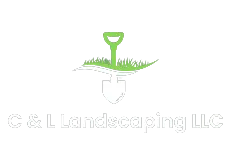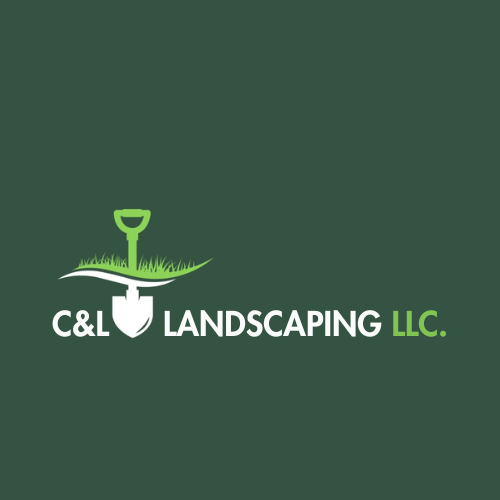LAWN & FUNGUS CONTROL
LEARN MORE
Effective Lawn Fungus Control with C&L Landscaping LLC
Is your lawn under siege from stubborn fungus issues? At C&L Landscaping LLC, we're committed to swiftly and effectively eliminating your fungus problem, ensuring a healthy, vibrant lawn that stands the test of time.
Sign Up for Our Lawn Fungus Control Program Today!
Don't let lawn fungus take over your beautiful space.
Why Choose C&L Landscaping LLC for Lawn Fungus Control?
20+ Years of Expertise: With over two decades of experience, we've successfully helped countless customers like you reclaim their lawns from fungus issues.Localized Solutions: Serving Upstate South Carolina, including Greenville, Greer, Anderson, Spartanburg, Easley, Woodruff, Wade Hampton, Taylors, and more, we understand the unique challenges of your region.Proven Results: Our lawn fungus control program has been a reliable solution for thousands of customers, ensuring the health and vitality of their lawns.
Our Lawn Fungus Control Program Highlights:
- Timely Applications:
Ongoing applications of both contact and systemic fungicides during the fungus season.
- Preventive Treatments:
Applied at a preventive rate throughout the fungus season, reducing the possibility of turf damage.
What to Expect from Our Program:
Treatments Every 21-28 Days: A proactive approach to ensure consistent protection.Custom Fungicide Plan: Tailored to your grass type and the specific fungus disease present in your lawn.Ongoing Applications: Both contact and systemic fungicides applied preventively.Trained Technicians: Expect professional and friendly technicians well-versed in identifying and treating various fungus diseases.Healthy Lawn Promise: Our job isn't done until you're completely satisfied. We stand by our 100% satisfaction guarantee.
Preventive Treatment Saves Your Lawn!
While targeted fungicides address current fungus issues, preventive treatments are crucial to reducing disease spread and minimizing turf loss. Sign up today and say goodbye to lawn fungus.
Ready to Reclaim Your Lawn? Say Goodbye to Fungus! Sign Up Now!
What Are Our Customers Saying ?
check out our feedback below.
FAQS
How often should I water my lawn, and what's the best time to do it?
The frequency and timing of lawn watering depend on several factors, including your local climate, soil type, and grass variety. As a general guideline, it's best to water deeply but infrequently. Most lawns benefit from around 1 to 1.5 inches of water per week, including rainfall. To promote strong root growth, it's usually better to water in the early morning, ideally between 6 AM and 10 AM. This allows the grass to dry before evening, reducing the risk of diseases.
How can I improve the health of my lawn's soil?
Soil health is crucial for a thriving lawn. To enhance your soil, consider regular aeration, which improves air and water penetration. Additionally, you can incorporate organic matter, such as compost, to improve soil structure and nutrient content. Conduct a soil test to identify any deficiencies and adjust your fertilization accordingly. Finally, mow your grass at the recommended height for your specific grass type, as this helps maintain soil moisture and grass health.
What can I do to prevent weeds without using harmful chemicals?
Preventing weeds naturally is a sustainable and eco-friendly approach. To do this, maintain a healthy lawn through proper watering, fertilization, and mowing. A thick, dense grass cover makes it difficult for weeds to establish themselves. Additionally, consider using organic mulch in your garden beds to smother weed growth. Hand-pull weeds when they appear, and ensure you remove the entire root system. Regularly overseeding your lawn with grass seed can also help fill in bare spots and compete with weeds naturally. If necessary, use organic weed control methods like vinegar-based herbicides for spot treatments.
When is the best time to get my mulch beds redone?
The best time to get your mulch beds redone is in the Late Fall or early Spring. This will allow your mulch beds to stay fresh during the Summer and maintain proper soil health for plants nearby.
When is the best time to get sod installed?
The best time to get sod installed depends on the type of grass that you have. Most likely, late Fall to early Spring is when most people seek to get theirs installed due to the temperature change from Spring to Summer promoting a healthy growing phase.
When should I consider fixing my sprinkler/irrigation system?
Visible Leaks: If you notice water pooling in areas where it shouldn't or soggy spots on your lawn, it's likely there's a leak in your system.
Uneven Watering: Areas that are consistently dry or overly saturated despite the same watering schedule may indicate issues with your sprinkler heads or distribution.
Increased Water Bill: A sudden spike in your water bill could be a sign of inefficient water usage due to leaks or malfunctioning components in your irrigation system.
System Age: If your sprinkler system is over 10-15 years old, it may be prone to more frequent breakdowns and inefficiencies, requiring repairs or upgrades.
Poor Coverage: Sections of your lawn or garden receiving inadequate water or not being watered at all suggest that your system needs adjustment or repair.
Common Signs of Sprinkler/Irrigation Issues:
Reduced Water Pressure: If some sprinkler heads are spraying weaker than usual, it could indicate clogs, blockages, or issues with the water supply.
Stuck or Broken Sprinkler Heads: Heads that don’t pop up or are damaged can lead to uneven watering and should be repaired or replaced promptly.
Controller Malfunctions: Problems with the controller such as incorrect scheduling, failure to turn on/off, or erratic behavior can affect the system’s efficiency.
Strange Noises: Grinding or whining sounds when the system operates could indicate issues with valves or the water pressure.
Plant Stress: Wilting plants or dry patches in your lawn despite regular watering may signal that your irrigation system isn't performing optimally.
When is the best time to aerate?
The best time to aerate depending on grass type is mid-to-late Fall. During this time period, most of the grass in the South is in prime growing season.
When is the best time to over-seed?
The best time to over-seed depending on grass type is mid-to-late Fall. During this time period, most of the grass in the South is in prime growing season.
How often should I have my grass cut?
How often you choose to have your grass cut depends solely on the type of grass that you have and the season you are in. In most cases, it is recommended that you get your grass cut weekly or bi-weekly depending on the season.

